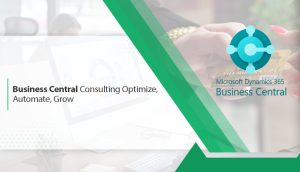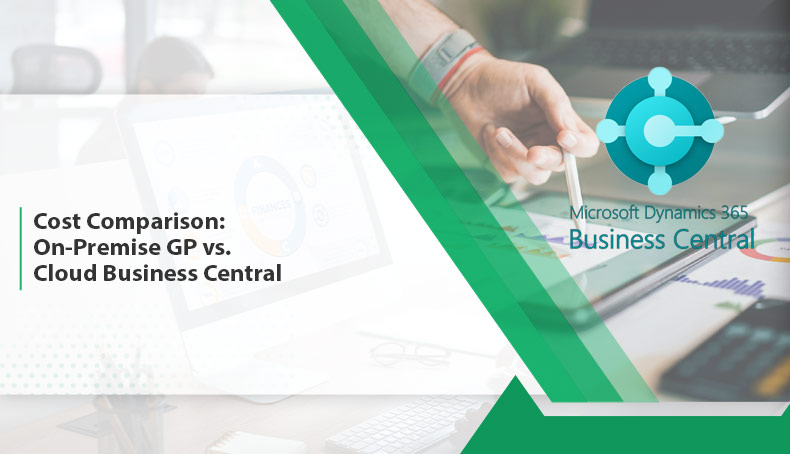Microsoft Dynamics 365 Vs NetSuite both solutions are leading vendors of Enterprise Resource Planning (ERP) and Customer Relationship Management (CRM) systems and provide a variety of management applications. Both applications aim to help companies streamline processes, increase productivity, and make data-driven choices.
NetSuite’s cloud-based ERP platform stands out for integrating diverse business functions, such as financial management, CRM, inventory, and e-commerce. On the other hand, Microsoft Dynamics 365, also cloud-based, provides comprehensive functions, encompassing finance, sales, purchasing, inventory, and more. While NetSuite emphasizes integration, Microsoft Dynamics offers a wide array of functions across various business domains.
At times, it can be very difficult to decide which new software solution is best for your organization -because there are so many options available.
What Is Dynamics 365 Used For?
Microsoft Dynamics 365 serves as a comprehensive business solution; moreover, Dynamics 365 plays a pivotal role in transforming businesses by integrating customer relationship management (CRM) and enterprise resource planning (ERP) capabilities into a unified platform.
Organizations utilize Dynamics 365, with the assistance of the Best Microsoft Dynamics 365 Partner in USA, to streamline procedures, improve customer interaction, expedite workflows, and obtain operational insights. Furthermore, it facilitates effective management of sales, marketing, and customer support through CRM applications, and provides valuable insights through data analytics, ultimately helping companies in achieving operational efficiency and growth.
What Is Net Suit Used For?
Oracle NetSuite is a market-leading cloud ERP software that caters to rapidly expanding small and medium-sized businesses globally. Moreover, it mainly targets software, retail, manufacturing, and distribution verticals with unified financials, inventory, CRM, and e-commerce abilities.
It simplifies operations across both customer-facing and internal functions, handling tasks such as revenue tracking, asset oversight, inventory control, order processing, invoicing, financial management, and beyond. Businesses can streamline mission-critical procedures and scale as they grow using NetSuite ERP. Unveiling NetSuite’s potential for business excellence, it acts as a comprehensive solution, fostering growth and efficiency in the ever-evolving landscape of modern enterprises.
A Quick Comparison of NetSuite Vs Microsoft Dynamics 365
Pricing:
Dynamics 365 provides a modular pricing model, enabling businesses to choose and pay for the applications they require. Conversely, on the flip side, NetSuite often presents a foundational bundle alongside a plethora of supplementary features, potentially providing a more budget-friendly alternative for small to medium-sized enterprises seeking an all-encompassing solution.
Compatibility & Integration:
Microsoft Dynamics 365 seamlessly integrates with other Microsoft products such as Office 365, Power BI, and Azure, making it an ideal choice for businesses already utilizing these tools. On the other hand, NetSuite shines with its unified business suite and excels in inherent integration across all modules.
Implementation
While both Microsoft Dynamics and NetSuite offer a spectrum of additional features and functionalities necessary for the business process automation suite you require, it’s important to consider their respective strengths and limitations.
Moreover, consultation regarding the extra features and functionalities needed for NetSuite automation can be provided by NetSuite implementation partners and NetSuite custom development companies. Microsoft Dynamics 365 offers a comprehensive implementation and a variety of choices to flex your ERP muscles to meet the needs of the business.
Best Fit Your Firm:
Both platforms offer solutions across diverse industries. Dynamics 365 frequently delivers more industry-specific modules owing to its vast partner network and seamless integration within Microsoft’s ecosystem; however, NetSuite, though highly customizable, may demand additional effort for alignment with specific industry requirements.
Accelerate Your Business with Microsoft Dynamics 365’s Game-Changing Capabilities!
Microsoft Dynamics ERP comprises a suite of integrated business applications, each designed to meet a unique business need. Its modularity is well-known, allowing companies to select the precise applications they need, thereby creating a customized solution. Here, we present the key modules and features. Stay tuned as we provide an in-depth analysis of the features, functionalities, and benefits offered by Dynamics 365 vs Business Central.
CRM Integration
CRM features like field service management, customer service management, and sales force automation are all included in the powerful Dynamics 365 Sales, Customer Service, and Field Service modules, implemented and supported by a trusted Microsoft Dynamics CRM Partner.
ERP functionality
The Microsoft Dynamics 365 Finance and Operations module offers extensive ERP features. It covers retail, manufacturing, supply chain, and financial management functions.
Business Intelligence (BI)
Power BI is one of the best tools for reporting and data visualization, which is a component of the Microsoft Dynamics package and can be integrated with Dynamics 365 and other data sources.
Artificial Intelligence (AI)
Microsoft Dynamics ERP provides solutions using artificial intelligence for customer analytics, sales forecasts, and customer service insights.
Human Resources (HR)
With a full suite of tools for handling HR data, benefits, pay, leave and absence, compliance, performance reviews, and employee self-service portals, the HR module allows organizations to optimize their HR procedures.
Marketing
The Microsoft Dynamics ERP Marketing module offers capabilities for creating and managing campaigns, segmenting customers, and tracking marketing performance through analytics.
Seamless Integration
Microsoft Dynamics ERP’s notable feature is its seamless integration with the ZATCA E-invoicing platform. Additionally, with pre-verified and approved e-invoicing solutions, the solution effortlessly synchronizes with Dynamics 365, ensuring a smooth data flow between invoicing and ERP systems. Furthermore, your solution can be operational within just one week.
Explore the Transformational Power of NetSuite Mastery!
NetSuite is a cloud-based Enterprise Resource Planning (ERP) software solution with a software as a service (SaaS) model. The system may be tailored to fit into small to medium and large-scale businesses because it is very flexible, scalable, and adaptable. It integrates a wide range of business applications, including ERP, CRM, HCM, e-commerce, PSA, BI, and many more, onto one platform. Key Modules and capabilities are given below.
E-commerce Support
Businesses may manage their online storefronts and operations with the help of NetSuite’s Suite Commerce module. This module offers features like online marketing, web content management, customer service, and more, thereby providing a comprehensive solution for e-commerce management.
CRM Integration
Moreover, NetSuite Customer relationship management (CRM) provides a comprehensive solution to handle the customer lifecycle, encompassing marketing automation, customer care management, and sales force automation (SFA), thereby offering a robust platform for managing customer interactions and driving business growth.
ERP functionality
NetSuite’s ERP module offers extensive, real-time financial management functionality, including Accounts Receivable, Accounts Payable, Fixed Assets, Tax Management, and General Ledger. Moreover, NetSuite smoothly integrates ERP capabilities and enhances organizations to effectively oversee and coordinate essential operational processes, ensuring a holistic and integrated approach to enterprise resource planning.
Business Intelligence (BI)
Businesses may comprehend and optimize complicated data with the help of the SuiteAnalytics module, which offers real-time, integrated reporting and analytics. It optimizes strategic planning and operational effectiveness within the organization.
Human Capital Management (HCM)
It utilizes a unified framework to manage HR procedures, including managing the employee lifecycle, assessing performance, handling payroll, monitoring time and attendance, workforce efficiency, talent acquisition, and employee development within a single framework, thus fostering a cohesive and efficient human resource strategy.
Professional Services Automation (PSA)
This Capability facilitates the management of timesheets, expenses, invoicing, resource allocation, and project planning. It increases overall efficiency in delivering professional services by providing real-time insights and tools for effective project planning and execution, consequently enhancing productivity and streamlining processes.
Global Business Support
Furthermore, NetSuite supports global businesses with multi-language and multi-currency capabilities. It actively facilitates international operations by providing a flexible and inclusive environment for diverse business requirements, ensuring a cohesive and integrated global business strategy.
Conclusion
In deciding which business software to choose between Microsoft Dynamics 365 Vs NetSuite for your company, the above comparison can assist you in making a more informed decision. Moreover, NetSuite, a comprehensive cloud-based solution, incorporates ERP, CRM, and e-commerce functionalities to manage all aspects of a business, including finance, accounting, inventory management, customer relationships, and e-commerce operations.
On the contrary, Microsoft Dynamics 365 comprises distinct but integrated modules for ERP, CRM, and other specific business functions within its suite of cloud-based business applications. his suite provides the flexibility to choose and integrate the necessary modules for specific business operations. Ultimately, you must decide on the software suite that aligns with your requirements and is within your budget.








